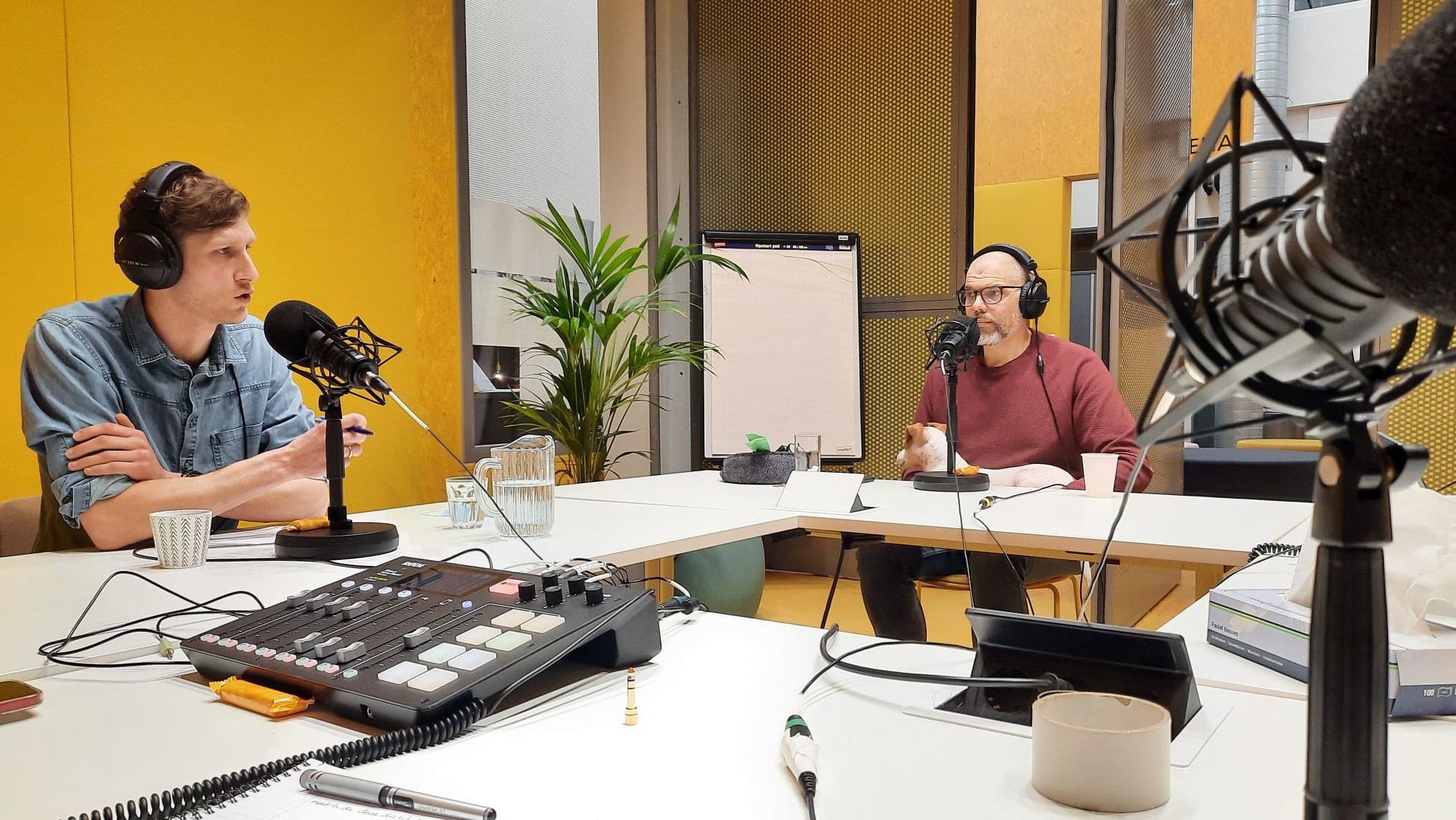DIY Podcasting
Teach your course material through audio
Do you have content that doesn't need visual processing?
Do you have conversation-based content?
Do you want to create study materials that are more accessible?

Possible uses
- Record existing lectures which doesn't require visual processing
- Use a podcast format to discuss case studies or experiences
- Discuss theoretical content and co-create with a colleague or guest lecturer
- Repeat content that is important to know; repetition is key to mastery
- Improve your connection with and motivate your students by letting them take part in a podast in FAQ format
- Create recreational podcasts to explain the relevance of the topic and how it can be positioned in society and how students can contribute after graduating
Advantages of podcasting
-
Podcasts can capture students' attention and engage them in the learning process. By presenting information in an audio format, lecturers can create a more dynamic and immersive learning experience that appeals to auditory learners. Podcasts can be entertaining, thought-provoking, and provide a fresh perspective, which can foster a deeper interest in the subject matter.
-
Podcasts offer flexibility in accessing content. Students can listen to podcasts at their convenience, whether during their commute, while exercising, or during downtime. This accessibility accommodates different learning schedules and preferences, allowing students to engage with the material wherever and whenever they choose. Offer international students or students with learning difficulties the possibility to review your content, again and again for reference purposes or when preparing for upcoming examinations.
-
Developing auditory learning skills requires practice and intention. Podcasts introduce students to a popular form of media consumption and lifelong learning. By incorporating podcasts into the course content, teachers help students develop skills such as active listening, note-taking, critical thinking, and information synthesis—skills that are valuable beyond the classroom.
-
Podcasts can serve as supplemental resources that provide additional information, real-world examples, expert interviews, or in-depth discussions on specific topics. They can complement traditional lectures, textbooks, and other learning materials, offering students an alternative perspective and expanding their understanding of the subject matter.
-
Through podcasts, teachers can establish a personal connection with their students. The audio format allows teachers to convey their enthusiasm, passion, and expertise in a more intimate and conversational manner. This authenticity can foster a sense of trust and rapport between the teacher and students.